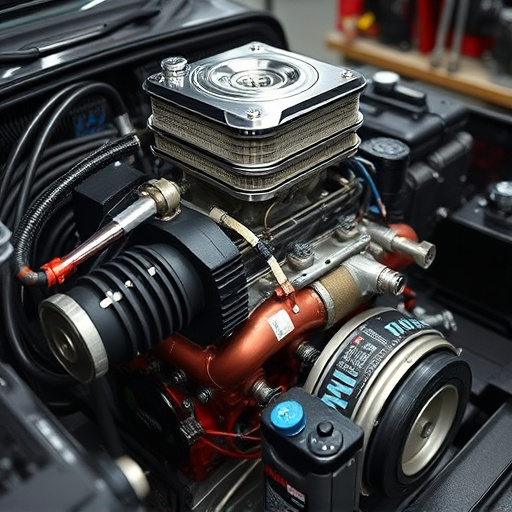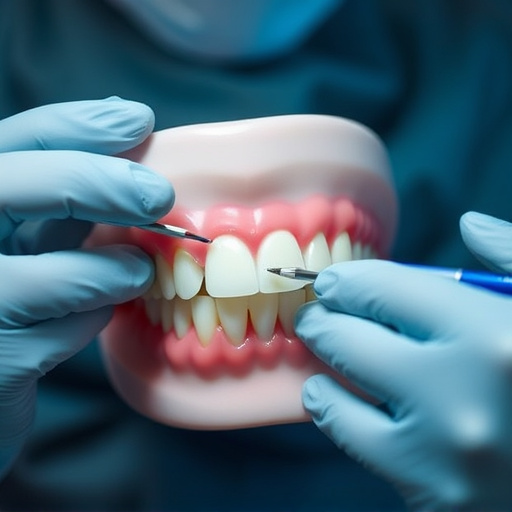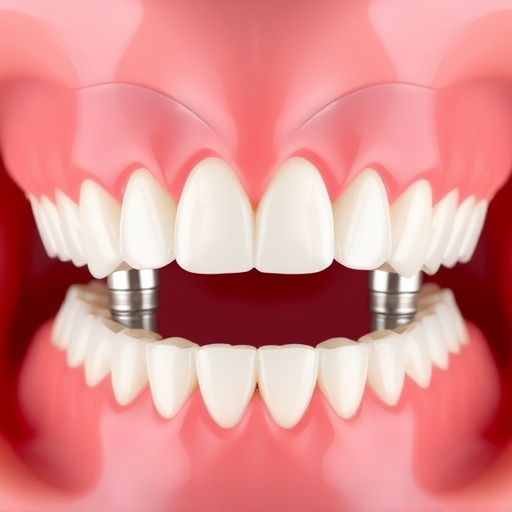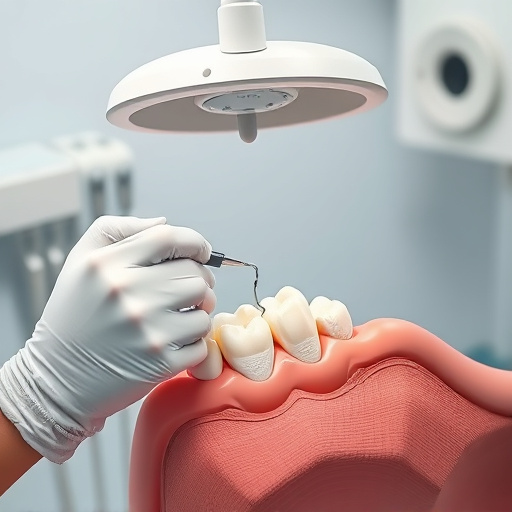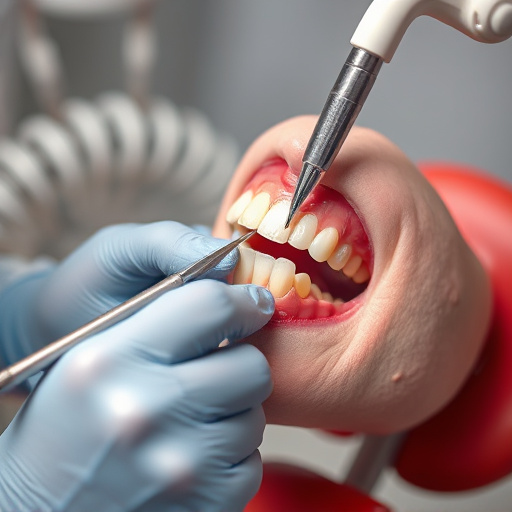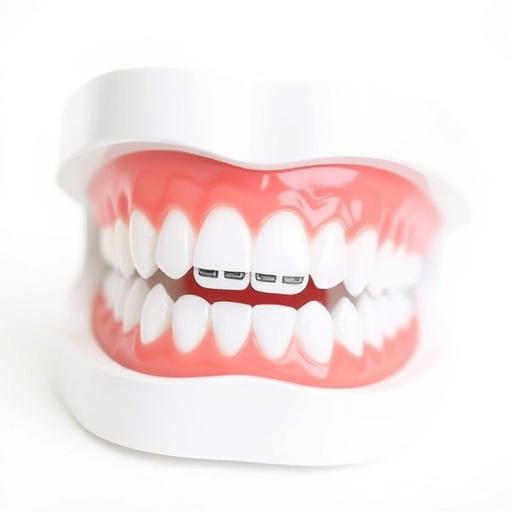Partial dentures services offer functional and aesthetic solutions for missing teeth, with flexible polymers prioritizing comfort and discreetness, while metal alloys guarantee durability. Custom-made by skilled denturists using advanced techniques, these dentures enhance oral health, maintain dentition alignment, and integrate seamlessly with implants, providing a balanced, healthy smile.
Looking for a reliable partial dentures service? Whether you’ve lost one or several teeth, partial dentures offer a natural-looking and comfortable solution. This article explores your options with flexible and metal partial dentures, highlighting their materials, benefits, and customization possibilities. Discover how the right fit ensures both comfort and functionality, enhancing your smile and confidence.
- Understanding Partial Dentures: Solutions for Missing Teeth
- Flexible vs Metal Partial Dentures: Materials and Benefits
- Choosing the Right Fit: Customization for Comfort and Functionality
Understanding Partial Dentures: Solutions for Missing Teeth

Partial dentures are a popular solution for individuals with missing teeth, offering both functional and aesthetic benefits. This type of dental restoration is designed to replace one or more missing teeth while maintaining the natural alignment of your remaining dentition. A partial denture service provides a comprehensive dental care solution, addressing not just the absence of teeth but also ensuring proper oral health.
When considering partial dentures, it’s crucial to consult with a qualified dentist who can offer flexible and metal options catering to different needs and preferences. Flexible partials, for instance, are known for their comfort and adaptability, making them ideal for patients concerned about gum irritation or wanting a discreet solution. Metal alternatives, on the other hand, provide durability and strength, often preferred in cases where long-term reliability is essential. Incorporating these advanced options within a comprehensive dental care routine also supports healthy teeth cleaning and, for those interested in cosmetic dentistry, can enhance overall smile aesthetics.
Flexible vs Metal Partial Dentures: Materials and Benefits
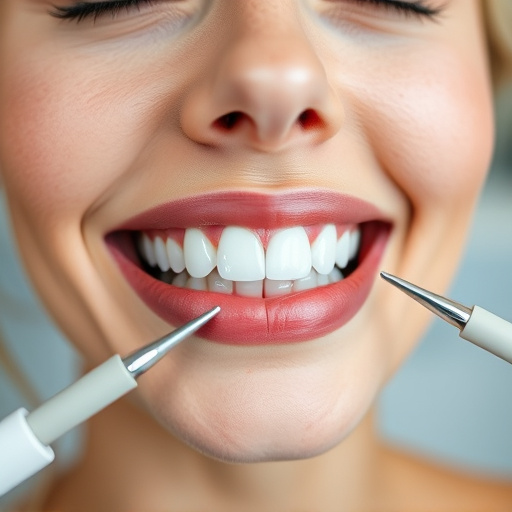
When considering a partial dentures service, one of the key decisions involves choosing between flexible or metal components. Both materials offer unique advantages in terms of comfort and durability. Flexible partial dentures, often made from heat-sensitive polymers, are known for their gentle fit and adaptability to oral contours. They are less likely to cause irritation or discomfort, making them ideal for those with sensitive gums. Furthermore, these flexible dentures can be easier to adjust and maintain, as they bend slightly, accommodating minor mouth movements during chewing and speaking.
On the other hand, metal partial dentures, typically crafted from chromium or cobalt-chrome alloys, offer superior strength and longevity. They are less prone to warping over time and retain their shape even with heavy chewing pressures. Metal components also tend to be more durable, resisting wear and tear better than flexible materials. While they may have a stiffer feel initially, many patients find that this stiffness prevents slippage during meals, enhancing overall comfort during routine oral exams and even in emergency dental care scenarios. Additionally, metal dentures can be seamlessly integrated with dental implants for a more secure fit, providing long-lasting solutions for tooth replacements.
Choosing the Right Fit: Customization for Comfort and Functionality
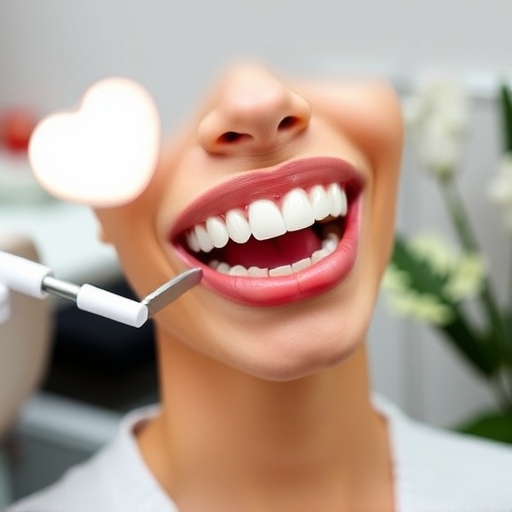
When considering a partial dentures service, ensuring a comfortable and functional fit is paramount. Customization plays a vital role in achieving this. Every individual’s mouth has unique dimensions, and skilled denturists use advanced techniques to craft dentures that perfectly complement your oral structure. This meticulous process involves taking precise measurements and impressions of your teeth, gums, and jawline, allowing for a tailored design that feels natural and secure.
A custom-made partial denture considers not only aesthetics but also functionality. It replaces missing teeth while maintaining the balance and alignment of your entire dentition. This is especially important after preventive dentistry measures like wisdom tooth removal or tooth extractions, where proper fit and support are crucial for long-term oral health and overall well-being.
When considering a partial dentures service, understanding your options in materials and customization is key. Both flexible and metal partial dentures offer unique benefits in terms of comfort, durability, and aesthetics. By choosing the right fit tailored to your needs, you can restore your smile effectively while enhancing your overall oral health and well-being.







